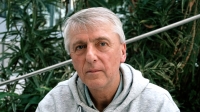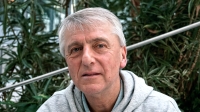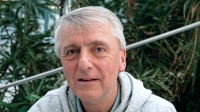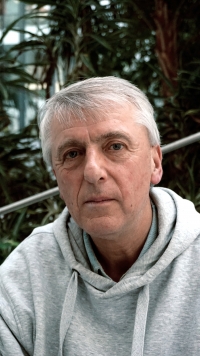I couldn’t imagine firing at a civilian

Download image
Josef Šamánek was born on March 23, 1956 in Brno as the firstborn son to the family of architect Josef Šamánek. In 1969, Josef’s father was expelled from the Brno University of Technology, where he worked as a teacher, for political reasons. Admission of Josef Jr. to a grammar school was put in doubt, too. The family considered emigrating, but when father found a job in the same line of work in Ostrava, the Šamáneks moved there in 1970. During his studies at a grammar school in Ostrava, Josef volunteered at excavations in Znojmo and prepared himself for archaeology studies. However, for political reasons, the Philosophical Faculty of Charles University twice rejected his admission. After “getting working class background” as a result of working for three-months at the Bruntál State Farm, he was admitted to the University of Agriculture in Brno. In August 1980, as a university graduate, he joined the armoured cavalry for one-year military service in Kdyně. In December, he was forced to participate in the Krkonoše [Giant Mountains] military exercise planned in order to be on alert in case the Solidarita movement in Poland got stronger. In the end, the invasion of Poland did not take place, military units were sent from the Polish border back to their home units. He lived in Brno in the 1980s and 1990s. He worked at the Research Institute for Fodder Crops and at the Czech State Insurance Company as a crop and harvest insurance clerk. During the revolutionary changes in 1989, he co-founded the Civic Forum at the Czech State Insurance Company in Brno. In the 1990s, he worked at the Czech Insurance Company as a member of the supervisory board and a human resource and sales manager at the regional level. He also worked at the Prague headquarters as a trainer. In 2005, 2009 and 2011, he served several weeks on assignments as a volunteer in the rear of the Israeli army. He has lived in Prague since 2004. He is a father of three children.



